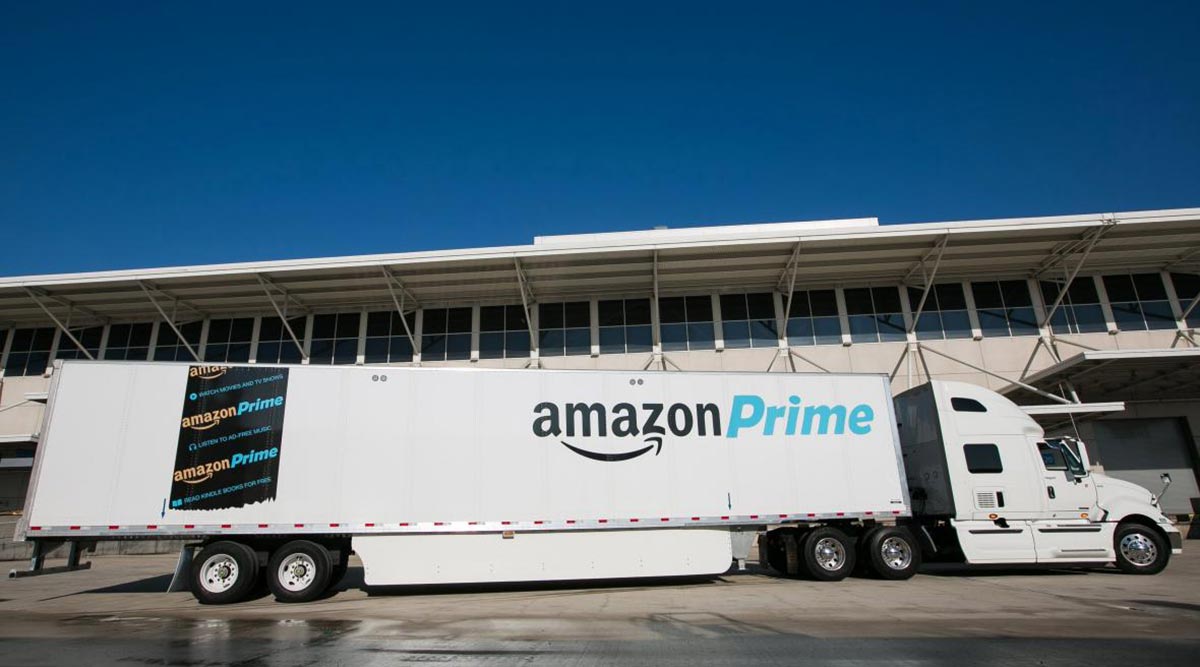Amazon Profit Tops Estimates as Fast Delivery Fuels Growth

Amazon.com Inc.’s sales and profit topped estimates on robust demand for quick-turnaround delivery, cloud services and gadgets such as the Kindle and Echo, adding to evidence the e-commerce giant can make money even as it invests heavily in future hardware, software and entertainment.
The results were a validation of Jeff Bezos’s customer-centric philosophy and the Amazon Prime membership model, sending the shares up more than 13% in late trading. The co-founder and CEO continues to invest to add services to the company’s $99-a-year subscription program by delivering products in as little as an hour and creating exclusive video programming for online streaming. Amazon is also working to keep consumers engaged with new products such as low-cost tablets and the Echo voice-activated home assistant.
The company posted its biggest-ever net income and said first-quarter sales climbed 28%, including a 64% rise at Amazon Web Services, its cloud-computing division. Investors have been watching for signs that Bezos is balancing his ambitious spending with their desire for consistent profits. Operating expenses rose by a quarter as Amazon pours money into projects such as expanding its network of U.S. warehouses and building new data centers that power AWS, yet the strong sales growth may help thwart any renewed concerns about profitability.
“This allays investor fears that Amazon has embarked on another aggressive investment cycle tied to logistics,” said Victor Anthony, an analyst at Axiom Capital Management.
Amazon shares, which have declined more than 10% this year, rose as high as $682.80 in extended trading following the report.
First-quarter net income was $513 million, or $1.07 a share, and revenue climbed 28% to $29.1 billion, the Seattle-based company said April 29 in a statement. That compared with analysts’ average projection for earnings of 57 cents and sales of $28 billion, according to data compiled by Bloomberg News. Amazon also gave a revenue forecast that exceeded some estimates for the current period.
The company’s Prime membership model, which includes delivery discounts designed to convert occasional shoppers into devotees, is showing similar success overseas as Amazon expands the service in Europe and Japan, Chief Financial Officer Brian Olsavsky said on April 29. That shows that Amazon can replicate Prime’s success, said RJ Hottovy, an analyst at Morningstar Inc.
“It’s not just a North American phenomenon anymore,” Hottovy said. “With Amazon Prime, customers have no reason to go anywhere else because there is nothing else like it. It’s a way to get customers and lock them in.”
By constantly upgrading its fast delivery options, the retailer aims to make buying something on its website comparable to the instant gratification of a quick trip to the store. It recently offered free two-hour delivery in big cities around the U.S. and local restaurant delivery, and is offering a monthly payment option for those reluctant to commit to an entire year.
The new offerings have helped drive up costs, and Olsavsky said the company will continue to invest in video because it helps attract additional Prime members. First-quarter total operating expenses increased 25% to $28.1 billion.
Amazon Web Services generated revenue of $2.57 billion, up from $1.57 billion a year earlier. The company said second-quarter sales will rise to $28 billion to $30.5 billion. On average, analysts had predicted revenue of $28.3 billion.

